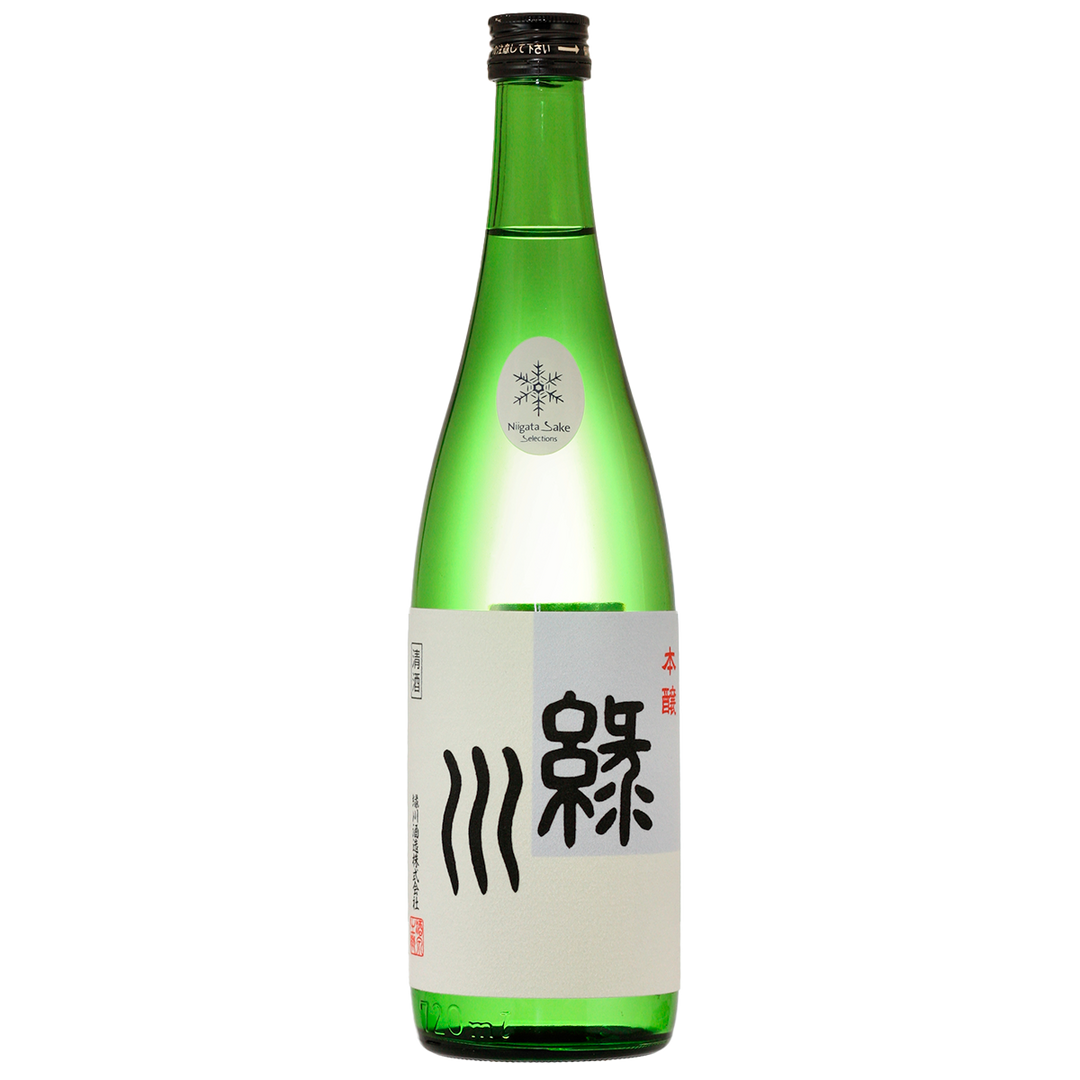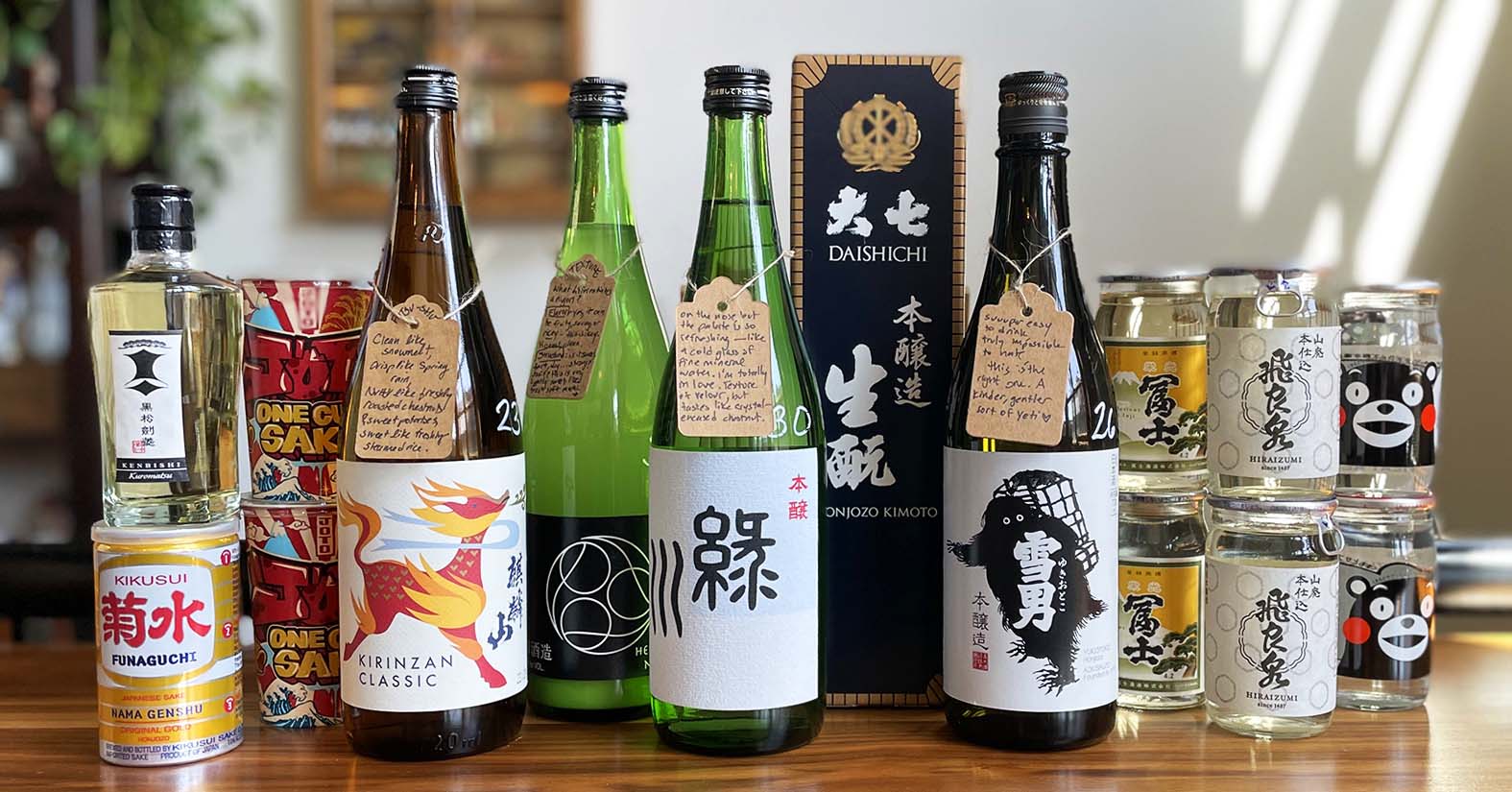
Midorikawa Honjozo
- In stock, ready to ship
You know, you think Niigata is a monolith until one day it clicks and the subtle nuances become clear. Midorikawa honjozo is a revelation for me. Like Matsunoi Tokubetsu Honjozo, Midorikawa has completely redefined honjozo in my eyes, rising from my least favorite style to (quite possibly) my favorite style in 2023.
Brewery: Midorikawa Shuzo 緑川酒造
Rice: Gohyakumangoku & Hokuriku No. 12 (local)
Polishing: 60%
Starter: sokujo
Water: soft, Midori River, 50m deep well
Yeast: #74
SMV +4
(from their website, translated by DeepL):
We want to do our best without compromise in both production and distribution.
Midorikawa Sake Brewery is located in a rice-producing region adjacent to the Midori river: crystal-clear and overflowing with Ayu, sweetfish. The Midorikawa Sake Brewery, located in the former Koide Town of Uonuma City, has no website, no mail-order sales, and no outside sales representatives. They only entrust their products to trusted distributors.
The distributors, too, have a website, but instead of placing orders online, they do so over the phone. Nowadays, people understand the importance of "branding," but we have enforced this intimate management style for more than 20 years.
The entrance to the Midorikawa Brewery building looks like a ryotei (Japanese-style restaurant). Sake bottles and straw barrels are on display, but nothing is superfluous. This impression was further confirmed upon entering the brewery.
Indeed, in order to avoid unnecessary and dangerous germs, the brewery is said to be so clean that "half of sake brewing is cleaning and washing. But not at that level, from the feet to the walls, which were thoroughly and neatly put away. There are even shelves where hoses are tucked away in straight lines, and an arrangement chart where tools are tucked away.
When asked, Shunji Ohira, fifth-generation president, says that he has an expert regularly check his tidiness and give him advice. If they can create an environment that keeps things so organized and clean, the employees will have no choice but to do the same. Tidy, clean, no unnecessary things, no dust at all.
It was in 1990 that the brewery moved from Koide City, where it was founded in 1884, to its current location surrounded by rice fields and close to mountains. The reason they chose this location was because of the water. The water is soft, abundant, with low iron content and a gentle character. After obtaining good water, the next step for the 5th generation president was to build a sake brewery where the temperature could be thoroughly controlled. Even though it is cool inside the brewery, the storage temperature becomes high in the summer and as Midorikawa's focus is matured sake, controlled temperature is very important.
Low-temperature aging takes longer, but the sake becomes mellower and the aroma is more subtle. We wanted to achieve both maturity and freshness, so we designed the cellar and other areas to be temperature-controlled, as well as other areas as deemed necessary. At the same time, the company was one of the first to try storing sake in the snow, and it is shipped refrigerated until around July. Sake is usually at a disadvantage in the middle of summer, but the president laughs, "Sake sells better in the summer."
The rice used by Midorikawa Brewery is also rare. The main rice used is Hokuriku No. 12. It has a light, unobtrusive taste, and does not become heavy even after being laid down to drink.
The sake is perfect for what the president is looking for.
"I think good sake is the kind of sake that goes with a meal and makes you feel nostalgic, like you've already had it before."
Hokuriku No. 12 has a long history, but the previous generation (4th president) resurrected production from a handful of seeds at a time when it had otherwise ceased to exist. It is rare in Niigata, and only one brewery in other prefectures is known to have it.
Because of this, all Hokuriku No. 12 rice is locally grown in the Koide area. All other rice used is 100% prefectural rice. The company has been working with contract farmers for the past 30 years, and currently there are more than 20 of them. The farmers have formed a study group called "Pride" and are working hard to improve their skills. The president and a rice specialist visit the rice fields before planting, before ear fertilization, just before harvest, and periodically throughout the year.
After moving the brewery, updating their procedures, honing the production of Hokuriku No. 12 and aging, the last thing President Ohira changed was his clients. It was a quarter of a century ago that President Ohira and his sales staff traveled from Hokkaido to Kyushu with the thought, "It is best to entrust our sake to people who really love it."
This policy is still the same today. In an age when fraudulent online sales are not uncommon, President Ohira does not neglect risk management, authenticity and traceability.
President Ohira talks about himself in a casual, joking manner, saying, "I was a violent and rowdy person. ....... but the rudder turned 25 years ago when I was still young." He had the future in mind and he is still looking to the future.
"Our sake has a delicate aroma and a flavor, is light and clean, and doesn't have much impact. I think it is okay to have such sake. In Niigata, we collectively call them "Niigata Tanrei," but there are subtle differences among them. Especially today, there are many variations. But all of them make good, carefully crafted sake that is easy to pair with meals. I think that is the beauty of Niigata's sake."
Interview and text by Hiroko Dennou



